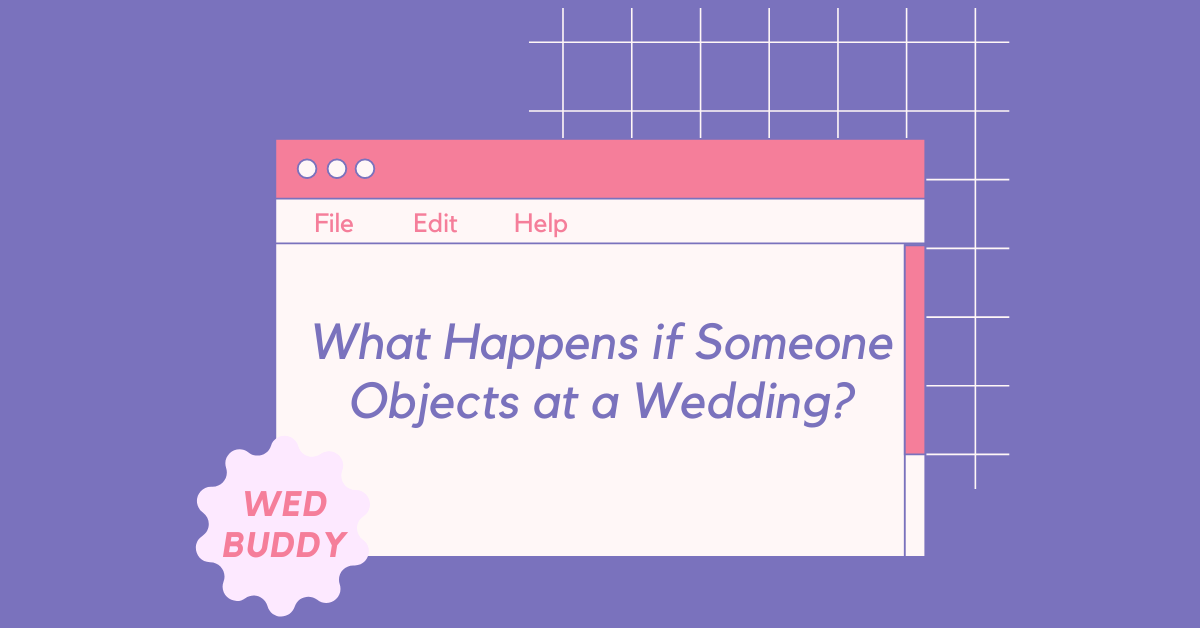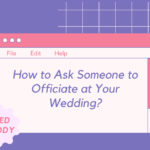There are many myths and legends surrounding objections at weddings, and not many of them are true.
I heard one recently about a groom’s mother faking an allergy attack during the ceremony. She demanded that the bride’s father and the groom himself take her to the emergency room. Not only did the bride not have someone to marry, but there was no one to walk her down the aisle. Pretty far-fetched, considering how many other family members were probably in attendance that could have taken the mother away.
There are historical reasons why the “speak now or forever hold your peace” section of the wedding ceremony even exists. These days though, if someone were to object, it’s rare that this action would stop the wedding. Mostly it’s just awkward. The vast majority of the time, what happens if someone objects at a wedding is: nothing.
Historical Connotations
In the 1100s, Pope Alexander III declared that marriage happens if a man and a woman consent to be married verbally. Of course, this led to tons of secret marriages in bed, and either party could deny all after the fact. This casual form of marriage was created simply in hopes of reducing sexual sins against God. In actuality, it increased the occurrence of acts seen as a sin in the eyes of 11th-century folk.
In those days, marriage was uttered amongst various men and women, behind closed doors or publicly. Thus, the first official playboys (and probably playgirls) of the age were born. I think of it as modern-day boyfriends and girlfriends. While society does try to impose rules, such as only having one boyfriend or girlfriend at a time, we all know that this simple rule gets broken often.
So Alexander deemed marriages to only be recognized by the church if overseen by a priest, in a church, at a reasonable time of day. Further, priests would announce the soon-to-be marriage every Sunday for three weeks leading up to the wedding. The church congregation had ample time to object to the wedding in advance. However, there was still the option to object during the actual ceremony.
Reasons for Objecting at a Wedding
The reasons that a couple should not be wed back then were similar to today:
- One or both parties are already married
- The couple is closely related to each other (although this had less strict guidelines in Biblical times)
- The couple is too young (but back then, it was normal to get married as young as 13 years old)
- One or both parties are unwillingly being forced into marriage (historically though, women were seen as property, and the term “forced” wasn’t even in the marriage vocabulary)
- If a person is a fraud or not who they say they are
So What Happens?
Back then, the priest gave plenty of time for objections, and the decision of whether the couple could be married fell to him and the bride and groom’s parents.
Nowadays, if you object to a wedding for any of the legitimate grounds above, the priest must stop the ceremony and investigate the claims. This happens rarely because instead of a three-week gossip campaign, we have background checks available. Sorry Aunt Marge, but if you object to the marriage because you don’t like your sweet niece’s new man, the priest will move on without you. But he might take you to the side to explain why you’re being ridiculous.




